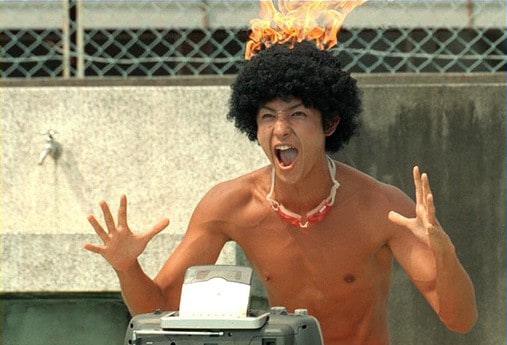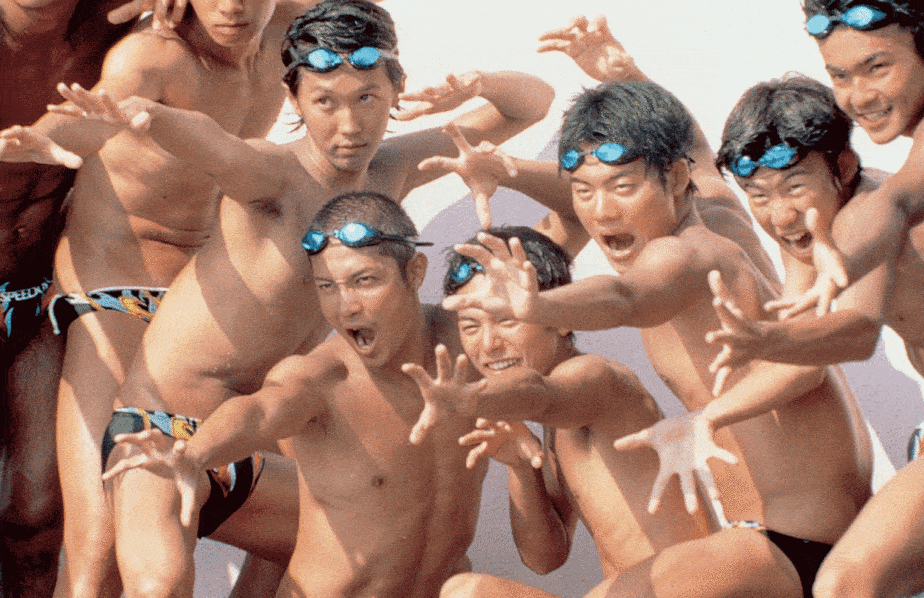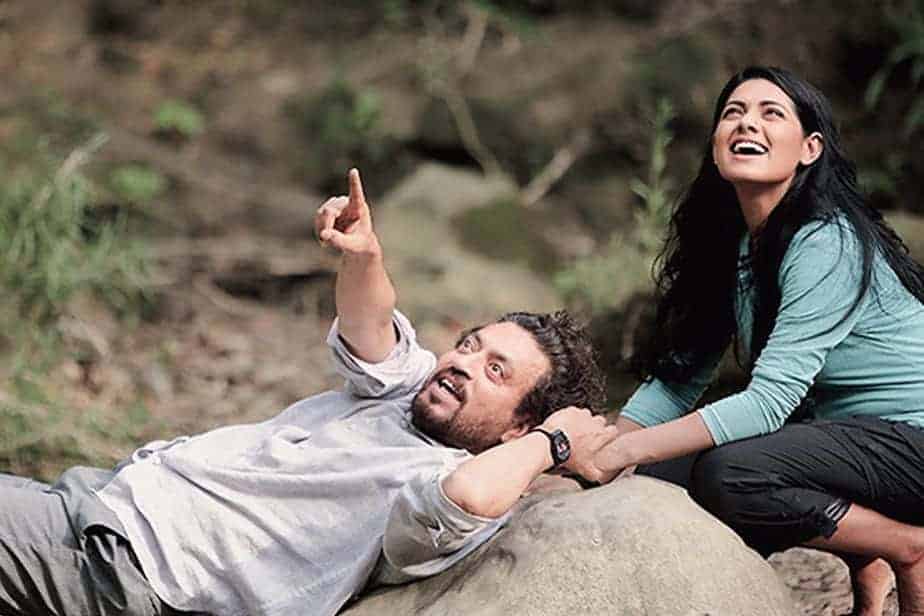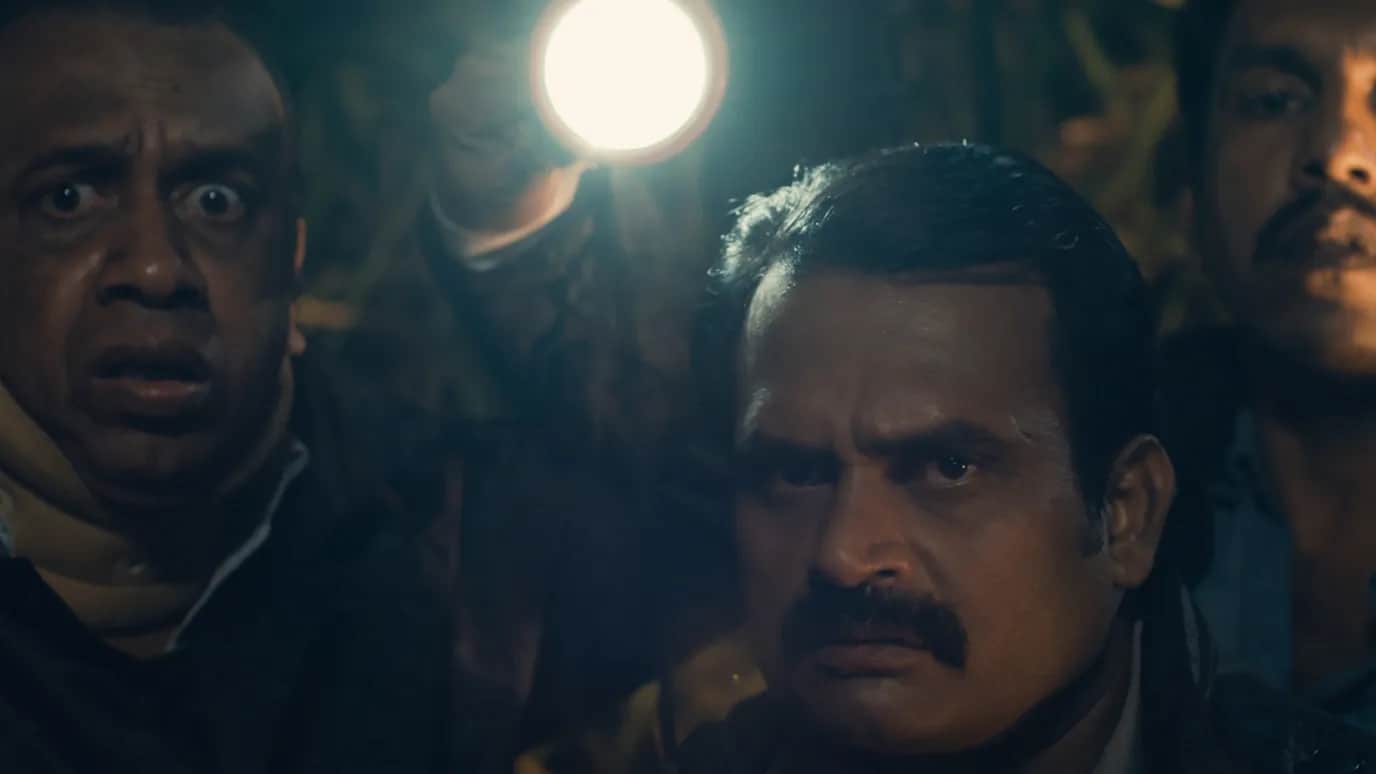Based on a true story, where the male members of the swimming team at Kawagoe High School, inspired by the popular Olympic synchronized swimming exhibitions on TV, choreographed and successfully performed their own synchronized swimming event, “Waterboys” was a huge success in Japan, nominated for eight prizes at from the Japan Academy (winning two), and spawning a TV series that lasted for three seasons.
“Waterboys” is screening at Japan Society

Suzuki is a high-school student who wants to become a great swimmer, but continuously fails, not to mention the fact that he is the sole member of the all-boys Tadano High School's swimming team. The fate of the team changes when a rather sexy new coach arrives at the school, who seems to have big plans for the team. Scores of students rush to join her class, but when it is revealed that she actually meant to train a synchronizing swimming team, all but five bail out. Thus, five rather awkward students, Suzuki, Sato, Ohta, Kanazawa and Saotome embark on a tumultuous trip to learn synchro (as is the Japanese term for synchronizing swimming), which eventually brings them in the company of a rather unlikely trainer, Isomura.
Shinobu Yaguchi directs a genuine Japanese comedy, filled with absurdity, slapstick humor, the occasional crudity, and a number of unlikely characters that get into more unlikely situations. The result is quite messy and does not stand up to logic much, but Yaguchi somehow manages to make it all work and to come up with a rather delightful and quite funny movie. The interactions between the characters are amusing from the beginning, particularly due to their teenage lustful nature, but the film truly takes off upon the appearance of Isomura, whose clowning adds another level of comedy to the story, also adding much to the entertainment it offers. Midori Kinouchi is great in the part, with the antithesis of his deep voice and his absurd movements providing a number of hilarious moments.

Apart from the comedy, the narrative includes homoerotic elements, mostly deriving from the ways the bodies of the youths are shot and depicted, and the presence of a homosexual member of the team. At the same time, though, it is difficult to discern if Yaguchi's aim was to “highlight” this part or to use it to add more comedy, with the presence of Akira Emoto as a transvestite definitely pointing towards the second aspect. Even this ambiguity, however, works in favor of the narrative.
The messiness extends to the choreographies, including the ones by Isomura, the training of the boys and the rather impressive last one, which features tens of boys dancing in and outside the water, in the most spectacular scene of the movie.
Yuichi Nagata and Shinobu Yaguchi's cinematography, apart from the bodies of the young men, focuses on presenting the quirkiness of the characters in an otherwise realistic setting, and it definitely succeeds. Ryuji Miyajima's editing adds to the quirkiness, with a number of abrupt cuts, while retaining a mid-tempo that suits the narrative quite nicely.

Satoshi Tsumabuki as Suzuki is the undisputed star of the film, with him highlighting his good nature and his social awkwardness, as exhibited in a romantic relationship, in the best fashion. Hiroshi Tamaki is also quite good as Sato, in a mostly comedic part. The theatrics and the hyperbole so frequently witnessed in Japanese mainstream films, however, are also here, although this aspect also fits the overall aesthetics of the movie.
“Waterboys” makes the most of its messiness, resulting in a funny and quite entertaining movie that is really easy to watch.















